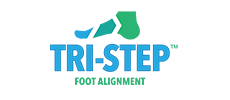Pregnancy & Your Feet الحمل وقدميك
First of all – congratulations! Pregnancy is an exciting time and your body will be going through a lot of changes, including your feet. At Dubai Podiatry Centre, we see the full range of foot issues – from fungal skin and toenail infections to ingrowing toenails, verrucas and biomechanical issues such as ‘flat feet’ and bunions.
Pregnant women can experience all of these foot complaints. However, pregnancy affects women’s feet in two extra ways. As Michelle Champlin, Chief Podiatrist at Dubai Podiatry Centre says that ‘firstly, pregnancy can exacerbate an existing condition, such as bunions or collapsed foot arches and secondly, it also impacts on treatment for a range of foot complaints.’
How does pregnancy affect feet?
Pregnancy affects the biomechanics of your feet – or the function and engineering. This is because of two main reasons: the first is the increased weight on your feet and the second is the release of hormones that serve a great (and necessary) purpose during pregnancy. These hormones cause your ligaments and muscles to become more soft and stretchy. Mrs. Champlin advises that ‘this is an ovarian hormone called, appropriately, relaxin. It makes the ligaments and muscles more elastic, like chewing gum and specifically works to stretch collagen, helping to prepare the pelvis for birth.’
The most common foot and leg issues in pregnancy:
• Swollen legs, ankles and feet: particularly in the later stages of pregnancy, as the womb puts pressure on veins in the pelvis, slowing the venous return of blood to the heart particularly from the legs.
• Collapsed arches: a common biomechanics problem from both the extra weight of pregnancy and the hormonal-related laxity of muscles and ligaments that normally hold foot posture in place. This can lead to collapsed medial and transverse arches, splaying (broadening) of the forefoot and even early bunions. Your feet and particularly heels may become painful.
• Varicose veins: Due to both the slower venous return of blood from your legs and the pregnancy hormones, your veins dilate and relax, causing blood to pool in your veins and in turn varicose veins.
• Increased risk of ankle / knee sprain: Due to the release of the hormone relaxin, your muscles and ligaments throughout your entire body become more loose and flexible. This hormone is especially working to widen the pelvis for birth. However, the hormone affects all of the ligaments and muscles, and in weight bearing areas of your ankles and knees, this can cause your joints to be less stable and more at risk of injury through twisting your ankle or knee accidentally.
Tips for Foot & Leg Health in Pregnancy
• Put your feet and legs up whenever you can to aid circulation
• Avoid crossing your legs when sitting
• Do daily foot and leg stretches, such as circling your ankles
• Stay active – exercise with your GP / Midwife’s advice
• Wear comfortable, wide fitting shoes, preferably with a small heel (no higher than 3cm), a Velcro or lace strap to hold the shoe in place, and plenty of cushioning in the sole. Sports shoes are ideal, or a cushioned low-heeled ‘mary-jane’ style for work – avoid unsupportive footwear such as flip-flops, ballet bumps and stilettoes
• Wear support stockings with the advice of your GP / Midwife.
Treating Foot Issues in Pregnancy
Always tell your Podiatrist, or any health professional, if you are pregnant or even if you suspect you might be and if you are breastfeeding. Some medications are not advised during pregnancy, even over-the-counter medications that do not require a prescription. As a general rule, ailments such as verrucas or fungal toenails can be safely left untreated until after baby is born and you have finished breastfeeding. If an issue such as a verruca is causing you pain when standing/walking though, this can be safely reduced though to clear the build up of dead skin that is causing the pain, and you can return after baby’s arrival and breastfeeding to start treatment (such as Dermojet).
Likewise, corns and callous can be reduced for your comfort also. Avoid taking oral medications without the advice of your Doctor and check with your Doctor / Pharmacist also prior to using any topical creams, sprays or ointments, even non-prescription ones.
Again, for issues such as ingrowing toenails, conservative treatment in the way of sterile corrective nail trimming by a qualified Podiatrist is usually the preferred and most cautious option. If you suspect bacterial infection of an ingrowing toenail (pus, swelling, redness) see your Doctor immediately.
If you are experiencing foot pain from fallen arches or bunions for example, your Podiatrist is on hand to offer special cushioning and padding for comfort. It is generally not advisable to make and fit custom corrective orthotics during pregnancy though, as the body (and feet) should be allowed to recuperate post-pregnancy and return once your feet are not under the hormonal and weight forces of pregnancy. Should a biomechanical issue persist post birth, such as heel pain (plantar fasciitis) treatment can then commence. Corrective orthotics work to tighten and tone the muscles and ligaments of the feet and the temporary pregnancy hormones would fight against this.
If you are experiencing any foot or leg pain, and are pregnant, contact the UK qualified Podiatrists at Dubai Podiatry Centre on +971 4 3435390 for our friendly advice and individual care.
Caution: Information contained in this article does not constitute medical advice and you are advised to seek detailed consultation and treatment from your GP or Podiatrist if you are experiencing any foot, ankle or leg complaints and are pregnant.
أولا وقبل كل شيء – تهانينا! يعد الحمل وقتًا مثيرًا وسيمر جسمك بالكثير من التغييرات، بما في ذلك قدميك. في مركز دبي لعلاج الأرجل، نعالج مجموعة كاملة من مشاكل القدم – بدءًا من التهابات الجلد الفطرية وأظافر القدم إلى أظافر القدم الغارزة والثآليل والمشاكل الميكانيكية الحيوية مثل “القدم المسطحة” والأورام.
يمكن للنساء الحوامل تجربة كل هذه الشكاوى من القدم. ومع ذلك، يؤثر الحمل على قدم المرأة بطريقتين إضافيتين. وكما تقول ميشيل شامبلين، رئيسة أطباء الأقدام في مركز دبي لعلاج الأقدام: “أولاً، يمكن أن يؤدي الحمل إلى تفاقم حالة موجودة، مثل الأورام أو انهيار أقواس القدم، وثانيًا، فإنه يؤثر أيضًا على علاج مجموعة من شكاوى القدم“.
كيف يؤثر الحمل على القدمين؟
يؤثر الحمل على الميكانيكا الحيوية لقدميك – أو وظيفتها وهندستها. وذلك لسببين رئيسيين: الأول هو زيادة الوزن على قدميك والثاني هو إطلاق الهرمونات التي تخدم غرضًا كبيرًا (وضروريًا) أثناء الحمل. تتسبب هذه الهرمونات في أن تصبح الأربطة والعضلات أكثر ليونة وتمددًا. تنصح السيدة شامبلن بأن “هذا هو هرمون المبيض الذي يُسمى، بشكل مناسب، الريلاكسين.” فهو يجعل الأربطة والعضلات أكثر مرونة، مثل العلكة ويعمل بشكل خاص على تمدد الكولاجين، مما يساعد على تحضير الحوض للولادة
مشاكل القدم والساق الأكثر شيوعًا أثناء الحمل
• تورم الساقين والكاحلين والقدمين: خاصة في المراحل المتأخرة من الحمل، حيث يضغط الرحم على الأوردة في الحوض، مما يبطئ عودة الدم الوريدي إلى القلب وخاصة من الساقين.
• الأقواس المنهارة: مشكلة ميكانيكية حيوية شائعة ناجمة عن الوزن الزائد الناتج عن الحمل والتراخي المرتبط بالهرمونات في العضلات والأربطة التي عادة ما تثبت وضعية القدم في مكانها. يمكن أن يؤدي هذا إلى انهيار الأقواس الوسطى والعرضية، وتباعد (توسيع) مقدمة القدم وحتى الأورام المبكرة. قد تصبح قدميك وخاصة الكعبين مؤلمة.
• الدوالي: بسبب تباطؤ عودة الدم الوريدي من ساقيك وهرمونات الحمل، تتوسع وتسترخي عروقك، مما يتسبب في تجمع الدم في عروقك وبالتالي ظهور الدوالي.
• زيادة خطر التواء الكاحل/الركبة: بسبب إطلاق هرمون الريلاكسين، تصبح العضلات والأربطة في جميع أنحاء الجسم أكثر مرونة ومرونة. ويعمل هذا الهرمون بشكل خاص على توسيع الحوض عند الولادة. ومع ذلك، يؤثر الهرمون على جميع الأربطة والعضلات، وفي المناطق التي تتحمل الوزن في الكاحلين والركبتين، يمكن أن يتسبب ذلك في أن تكون مفاصلك أقل استقرارًا وأكثر عرضة لخطر الإصابة من خلال التواء الكاحل أو الركبة عن طريق الخطأ
نصائح لصحة القدم والساق أثناء الحمل
• ارفعي قدميك وساقيك للأعلى كلما استطعت لمساعدة الدورة الدموية
• تجنب عقد ساقيك عند الجلوس
• قم بتمديد القدم والساق يوميًا، مثل لف الكاحلين بشكل دائري
• حافظي على نشاطك – مارسي التمارين الرياضية بناءً على نصيحة طبيبك العام/ القابلة
• ارتدي حذاءً مريحاً وواسعاً، ويفضل أن يكون بكعب صغير (لا يزيد عن 3 سم)، وشريط فيلكرو أو شريط من الدانتيل لتثبيت الحذاء في مكانه، والكثير من الوسائد في النعل. تعتبر الأحذية الرياضية مثالية، أو الأحذية ذات الكعب المنخفض المبطنة على طراز “ماري جين” للعمل – تجنب الأحذية غير الداعمة مثل الشباشب وأحذية الباليه والأحذية ذات الكعب العالي.
• ارتدي جوارب داعمة بناءً على نصيحة طبيبك العام/ القابلة.
علاج مشاكل القدم أثناء الحمل
أخبر دائمًا طبيب الأقدام الخاص بك، أو أي أخصائي صحي، إذا كنت حاملاً أو حتى إذا كنت تشك في أنك قد تكونين كذلك وإذا كنت ترضعين طفلك. لا يُنصح بتناول بعض الأدوية أثناء الحمل، حتى الأدوية المتاحة دون وصفة طبية والتي لا تتطلب وصفة طبية. كقاعدة عامة، يمكن ترك أمراض مثل الثآليل أو فطريات أظافر القدم دون علاج بأمان حتى بعد ولادة الطفل والانتهاء من الرضاعة الطبيعية. إذا كانت مشكلة مثل الثؤلول تسبب لك الألم عند الوقوف/المشي، فيمكن تقليل ذلك بأمان لإزالة تراكم الجلد الميت الذي يسبب الألم، ويمكنك العودة بعد وصول الطفل والرضاعة الطبيعية لبدء العلاج ( مثل ديرموجيت).
وبالمثل، يمكن تقليل مسامير القدم والصلبة من أجل راحتك أيضًا. تجنب تناول الأدوية عن طريق الفم دون نصيحة طبيبك واستشر طبيبك / الصيدلي أيضًا قبل استخدام أي كريمات أو بخاخات أو مراهم موضعية، حتى تلك التي لا تستلزم وصفة طبية.
مرة أخرى، بالنسبة لمشاكل مثل أظافر القدم الغارزة، فإن العلاج المحافظ بطريقة تقليم الأظافر التصحيحية المعقمة بواسطة طبيب أقدام مؤهل هو عادة الخيار المفضل والأكثر حذرًا. إذا كنت تشك في وجود عدوى بكتيرية في ظفر القدم الناشئ (قيح، تورم، احمرار) راجع طبيبك على الفور إذا كنت تعاني من آلام في القدم بسبب سقوط الأقواس أو الأورام على سبيل المثال، فإن طبيب الأقدام الخاص بك موجود لتقديم توسيد خاص وحشو للراحة. لا يُنصح عمومًا بتصنيع وتركيب أجهزة تقويم العظام التصحيحية المخصصة أثناء الحمل، حيث يجب السماح للجسم (والقدمين) بالتعافي بعد الحمل والعودة بمجرد عدم تعرض قدميك لقوى الحمل الهرمونية والوزن. في حالة استمرار مشكلة ميكانيكية حيوية بعد الولادة، مثل ألم الكعب (التهاب اللفافة الأخمصية)، يمكن البدء في العلاج. تعمل أجهزة تقويم العظام التصحيحية على شد وتقوية عضلات وأربطة القدمين وستحارب هرمونات الحمل المؤقتة ذلك.
إذا كنتِ تعانين من أي ألم في القدم أو الساق، وكنتِ حاملًا، فتواصلي مع أطباء الأقدام المؤهلين في المملكة المتحدة في مركز دبي للعناية بالاقدام على الرقم ٠٤٣٤٣٥٣٩٠ للحصول على نصائحنا الودية والرعاية الفردية.
تحذير: المعلومات الواردة في هذه المقالة لا تشكل نصيحة طبية وينصح بطلب استشارة وعلاج تفصيلي من طبيبك العام أو طبيب الأقدام إذا كنت تعاني من أي شكاوى في القدم أو الكاحل أو الساق وكنت حاملاً







